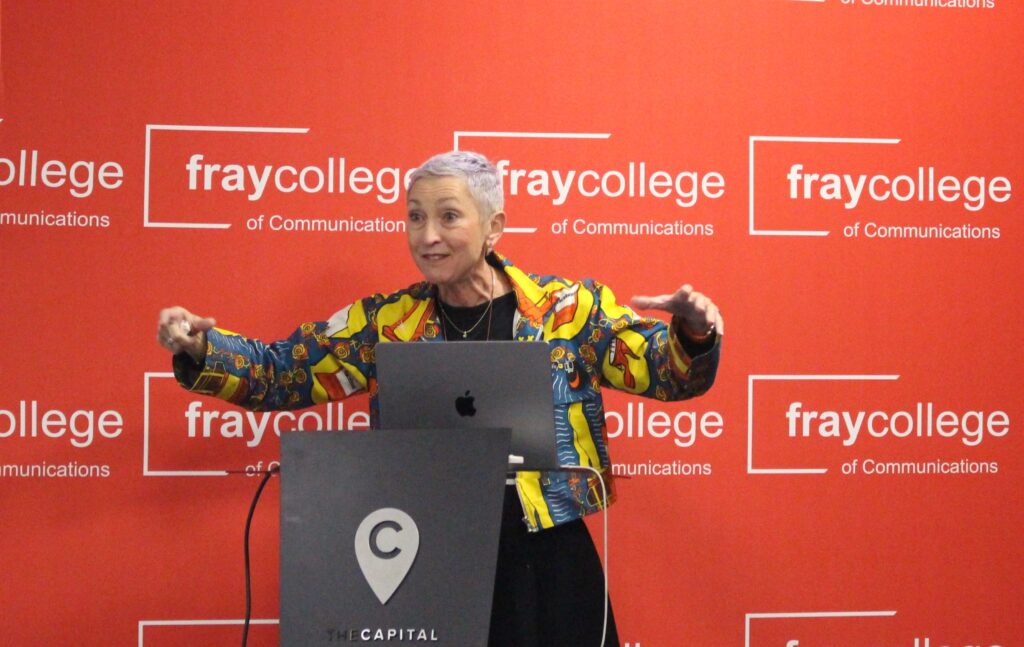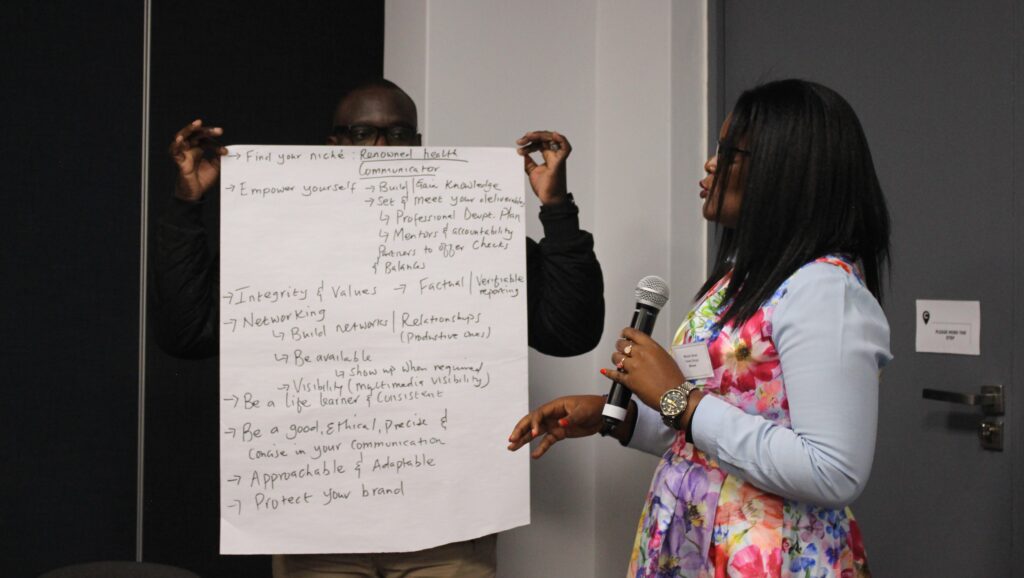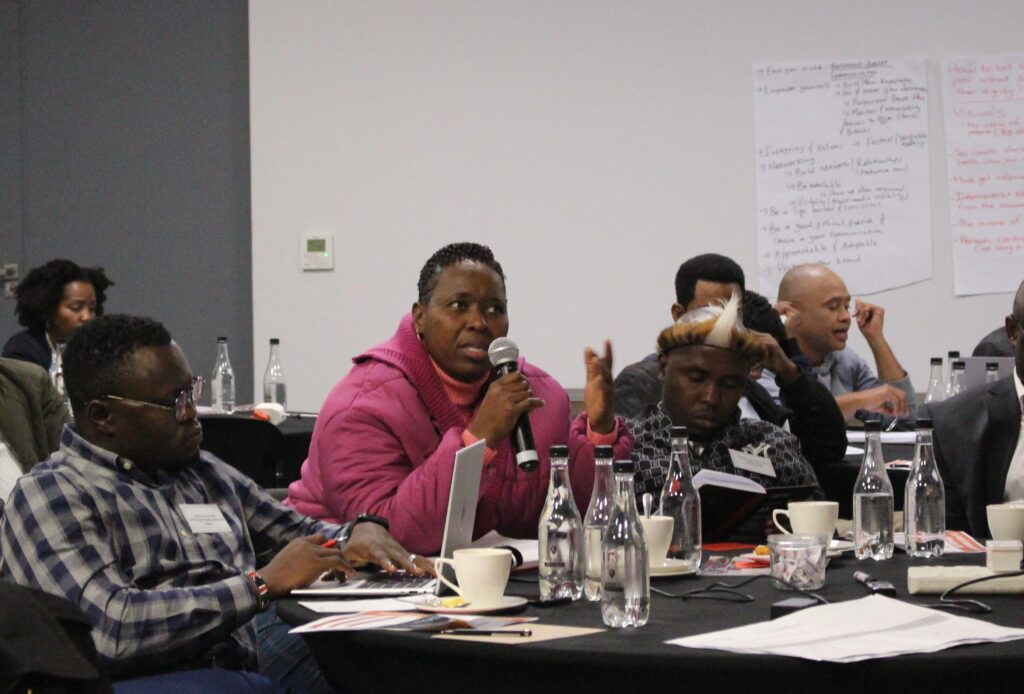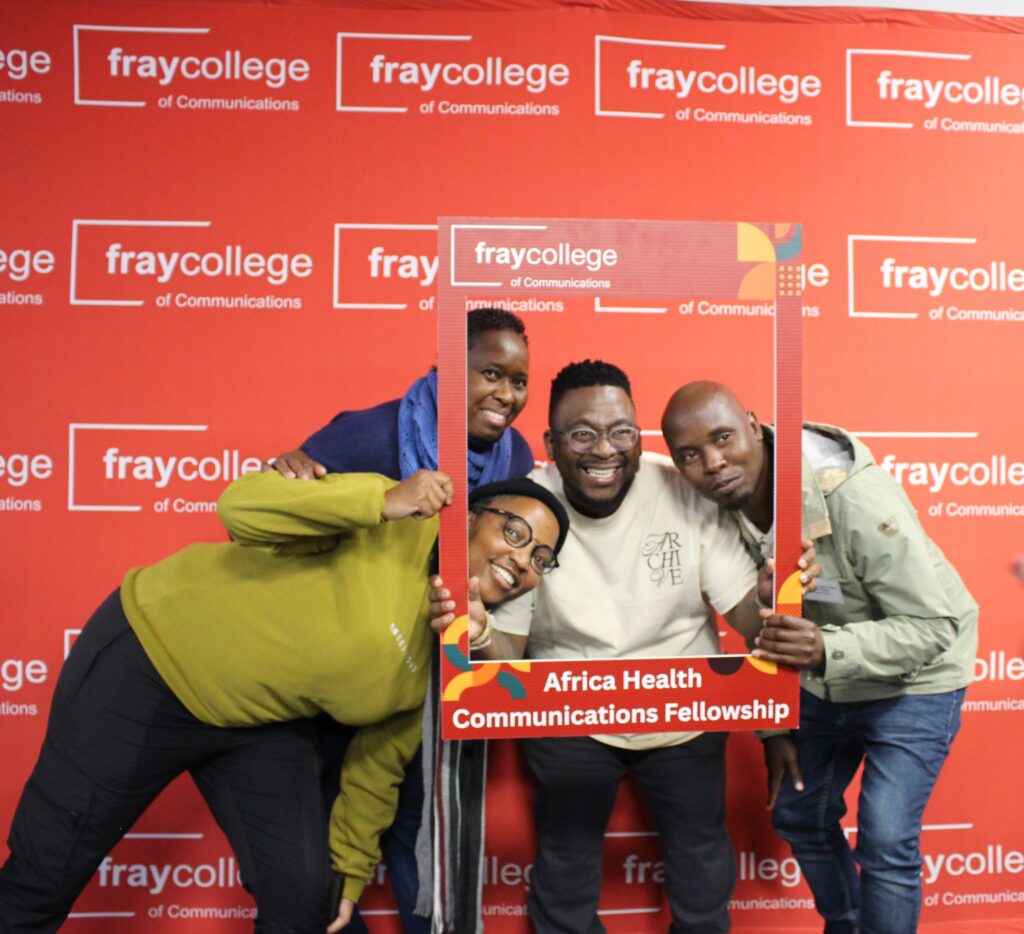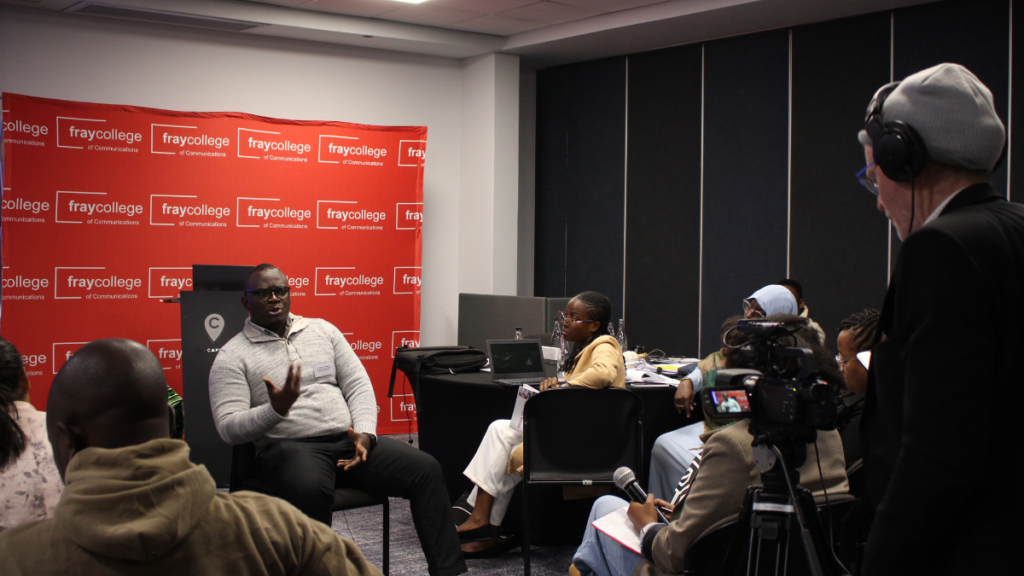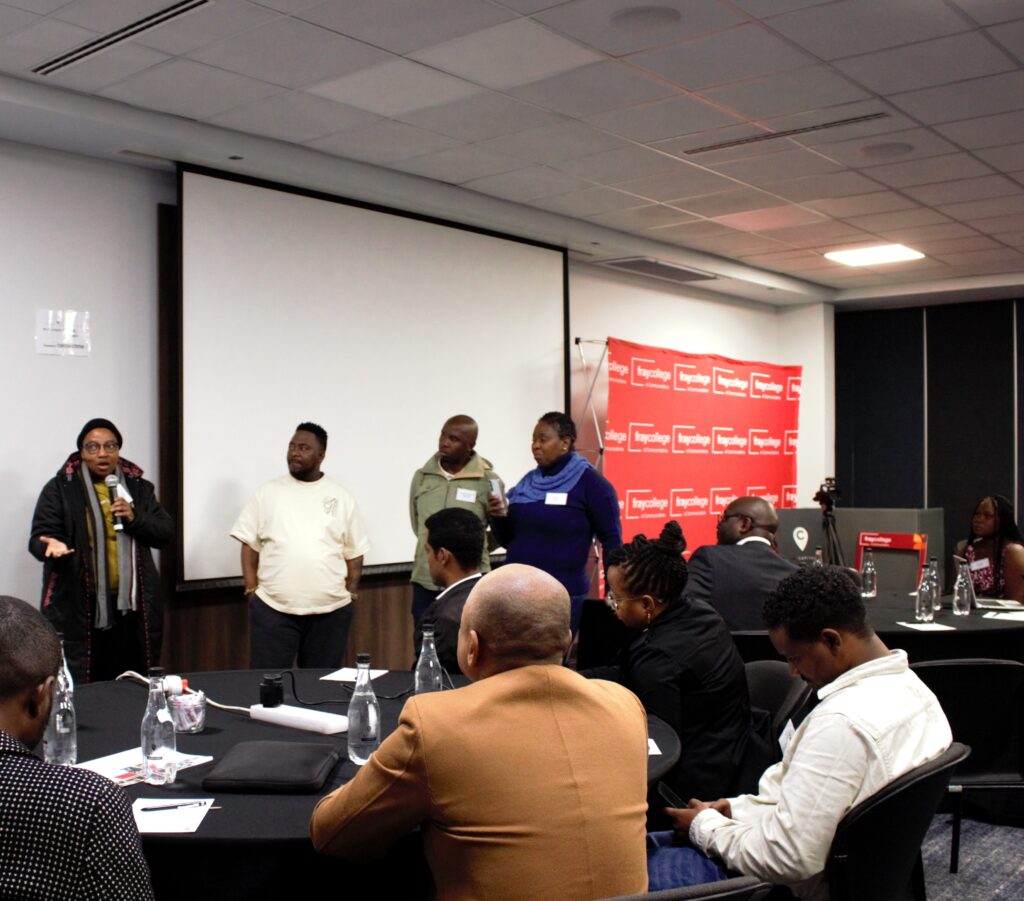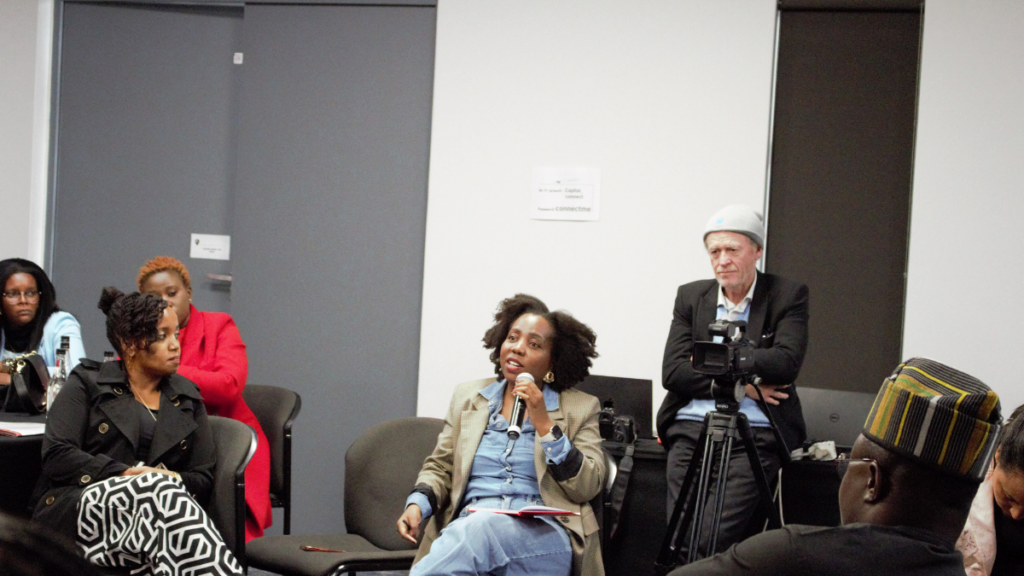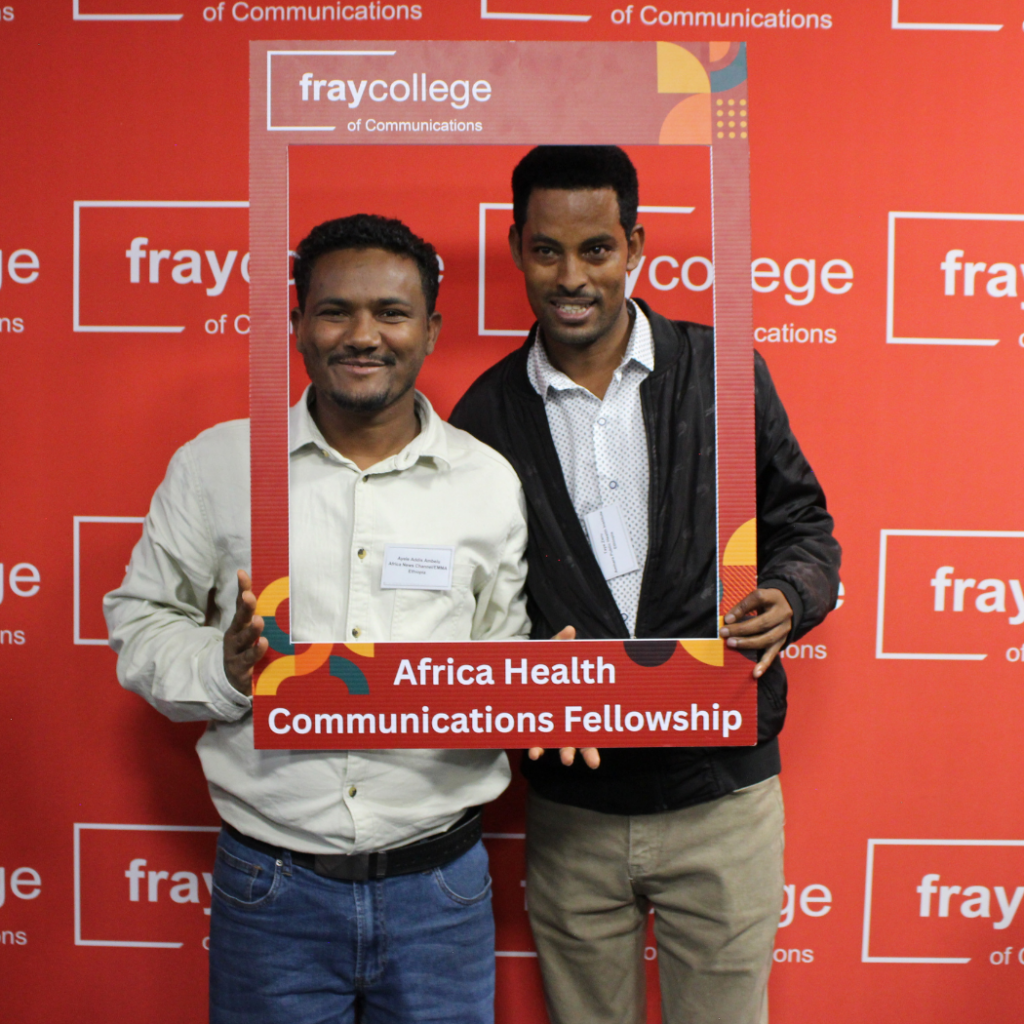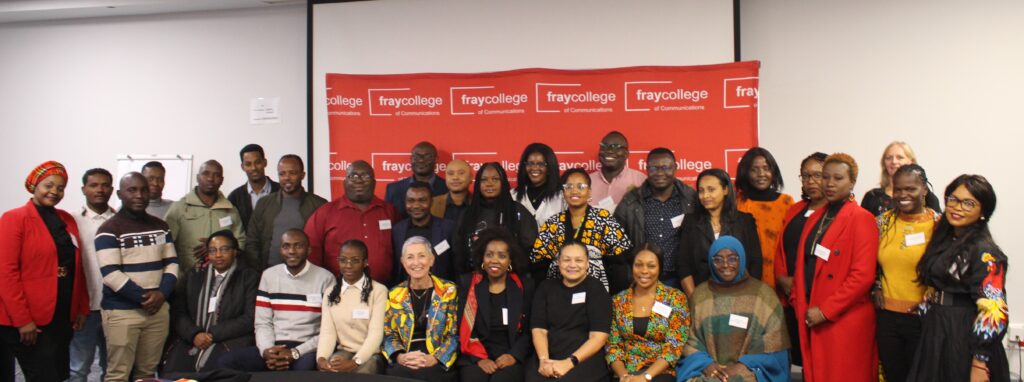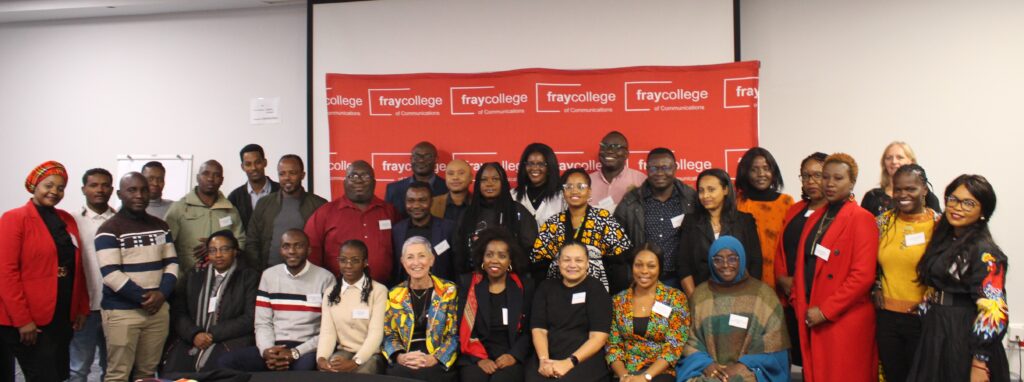
In late June 2025, fraycollege hosted its inaugural Africa Health Communications Fellowship conference, bringing together leading voices in journalism, public health, and communications from across the continent. Designed to elevate the role of credible, compelling storytelling in shaping Africa’s health agenda, the conference spotlighted how evidence, ethics, and creativity can work together to drive public health impact.
Championing Evidence and Advocacy
Opening the event, keynote speaker Professor Linda-Gail Bekker, CEO of the Desmond Tutu Health Foundation, delivered an inspiring livestreamed address on Leading with Evidence: Driving Public Health Change in Africa. She challenged participants to embrace both scientific rigour and empathy as tools for leadership in health communication — a message that resonated throughout the conference. You can watch the full live stream here: https://youtube.com/live/WDBH0vlvPvQ?feature=share
Journalist and social justice advocate, Mark Heywood, built on this theme in his provocative session, When Evidence Isn’t Enough: Leadership, Ethics and the People Power Behind Health, urging fellows to bridge the gap between data and activism, especially when systems fail the people they serve.
Decolonising and Reclaiming the Narrative
Participants were invited to rethink how African health stories are told. Africa No Filter led a powerful session on Telling Africa’s Health Stories: Decolonising Health Communication, calling for a narrative shift that centres African expertise, lived experience, and resilience.
Addressing the growing threat of misinformation, Africa Check shared practical tools to help fellows assess and verify information, identify disinformation, and push back against misleading narratives that compromise public health.
Building Practical Skills for Impact
The conference placed a strong focus on skills development. Fellows participated in interactive workshops on multiplatform storytelling, conducting media interviews, and building a personal brand for public health advocacy, with expert guidance from Lebo Madiba of PR Powerhouse.
Additional sessions explored how to apply behavioural linguistics in health messaging, how to translate research into policy and practice with support from the Aurum Institute, and how to craft messages that resonate with diverse audiences.
Reflections from the Fellowship
Throughout the conference, fellows and speakers echoed a common call: elevate depth, clarity, and credibility in public health communication.
“Fluency is not content. Fluency is not competence. But somehow, we’ve made it the standard. We celebrate smooth talkers over deep thinkers. The result? Shallow scholarship. Weak thinking. And impact—if it ever comes—is an afterthought. It’s time to stop confusing eloquence with insight. Let’s start rewarding clarity, rigor, and meaning—not just well-packaged noise.” Dr. Luchuo Engelbert Bain from the African Population and Health Research Center (APHRC), in Nairobi
His words resonated deeply across the fellowship — a reminder that beyond style and visibility, it’s thoughtful, evidence-based communication that truly drives change.
